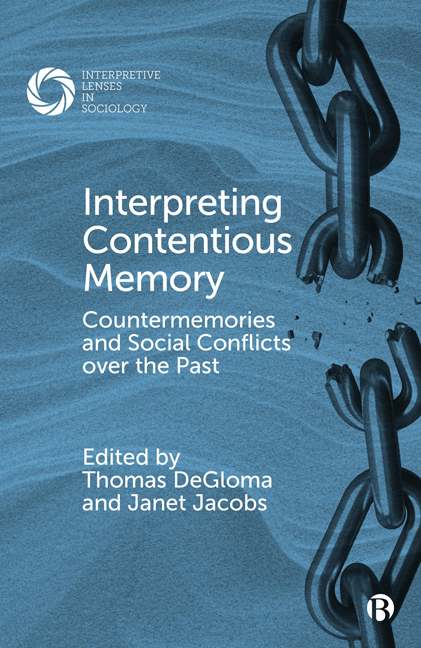Book contents
- Frontmatter
- Contents
- Series Editors’ Preface: Interpretive Lenses in Sociology – On the Multidimensional Foundations of Meaning in Social Life
- Notes on Contributors
- Acknowledgments
- 1 Introduction: Interpreting Contentious Memories and Conflicts over the Past
- PART I Interpreting Memories in the Social Dynamics of Contention
- PART II Racism, Exclusion, and Mnemonic Conflict
- PART III Genocide, Memory, and the Historicizing of Trauma
- Index
2 - On the Social Distribution of Soldiers’ Memories: Normalization, Trauma, and Morality
Published online by Cambridge University Press: 20 January 2024
- Frontmatter
- Contents
- Series Editors’ Preface: Interpretive Lenses in Sociology – On the Multidimensional Foundations of Meaning in Social Life
- Notes on Contributors
- Acknowledgments
- 1 Introduction: Interpreting Contentious Memories and Conflicts over the Past
- PART I Interpreting Memories in the Social Dynamics of Contention
- PART II Racism, Exclusion, and Mnemonic Conflict
- PART III Genocide, Memory, and the Historicizing of Trauma
- Index
Summary
Introduction
This chapter aims to address the interrelationship between personal and national recollections of war as reflected by the memories of different generations of combatants among Israeli society. This multi-generational observation offers the analysis a dynamic dimension and enables us to learn of how the interrelationship between personal and national memory changes in different historical-cultural contexts, and in accordance with the nature of the fighting. More particularly, the chapter aims to explore the cultural discourses that shape the field of memory within which the subjects remembering operate. That is, to identify the different discourses that grant meaning to the combat experience, track their changes over time, examine their interplay, and situate the mode through which they shape personal memories and are shaped by them.
I discuss these issues through a critical reading of my work, in light of further research on soldiers in the Israeli context. I present this reading in two phases: First, I engage in a close reflexive analysis of a study I conducted on the memories of soldiers who fought in the 1973 War – The Yom Kippur War – which is perceived as the most traumatic war among Israeli society's national memory. This analysis reveals blind spots in the original work that masked key processes in constructing personal memory. Second, I expand the discussion on the interplay between personal and collective memoryby focusing the lens on the soldiers who served in the occupied territories and Gaza during the 2000s.
This two-pronged reading indicates how the discourse of trauma becomes central in the memory field among Israeli society. In more detail: the analysis exposes various manifestations of trauma discourse over time, examining the interrelationship between this discourse and others (the heroic, critical, and resilience) that grant meaning to memories of the war; and addressing the means through which Israeli society seeks to monitor the threatening implications of traumatic interpretation through the design of what I call “normalized trauma.”
Prior to delving into the discussion, it is important to stress here that the study deals only with the Jewish-Israeli national and personal memories of the war and not with the memories of the Palestinian-Israelis.
- Type
- Chapter
- Information
- Interpreting Contentious MemoryCountermemories and Social Conflicts over the Past, pp. 29 - 48Publisher: Bristol University PressPrint publication year: 2023



